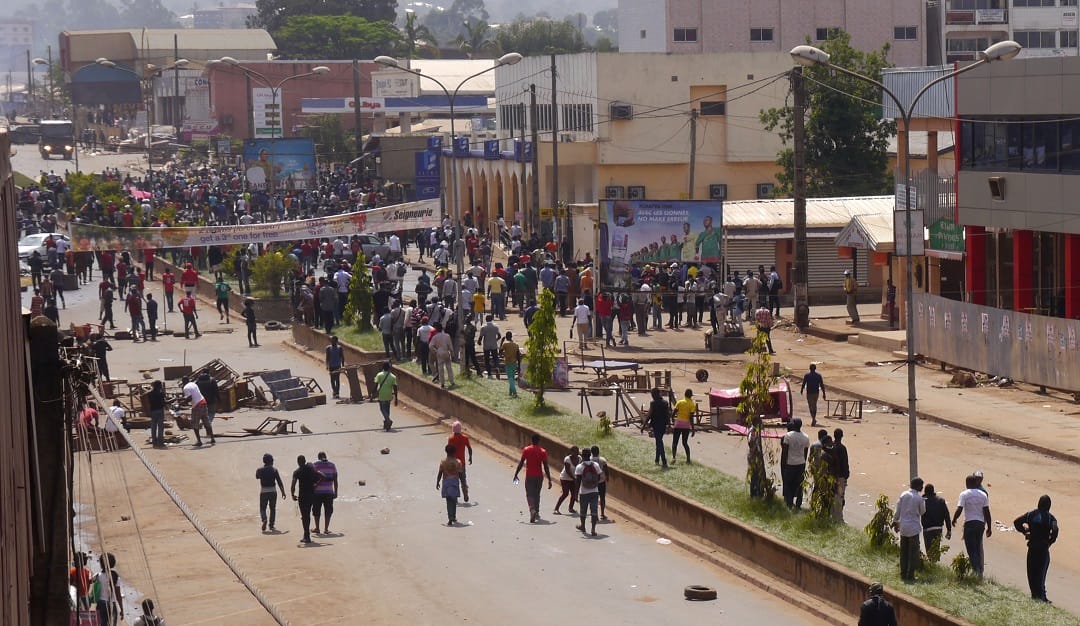
Anti-government demonstrators block a road in Bamenda, Cameroon, December 8, 2016. REUTERS/Stringer - RTSVBFL
Cameroon’s presidential campaign officially began on September 27, 2025, under an unusual media silence.
The National Communication Council (CNC) has ordered a suspension of all political debate broadcasts on audiovisual media for the duration of the campaign.
Authorities justified the measure as a means to ensure fairness between candidates, but critics argue it stifles dissent and limits scrutiny of President Paul Biya, who has been in power for 43 years.
CNC President Joseph Chebongkeng Kalabubse defended the ban as a legal requirement to guarantee equal treatment for all candidates.
Traditional debates are being replaced with election propaganda programs and campaign newspapers. However, this rationale is fiercely contested.
The National Union of Journalists of Cameroon (SNJC) condemned the decision, describing it as repressive and an overreach by the regulator, effectively positioning itself as editor-in-chief for all media.
Journalists warn that the ban denies voters a vital space for analysis and the confrontation of ideas, essential components of a robust electoral process.
The decision has intensified concerns about the fairness of the upcoming October 12 election.
With the ruling Cameroon People’s Democratic Movement (CPDM) widely regarded as the frontrunner, the ban fuels suspicion that the government seeks to avoid in-depth scrutiny of Biya’s four-decade record while limiting the visibility of opposition candidates.
Political analysts note that the ban highlights broader tensions between state authority and media freedom in Cameroon.
While President Biya’s campaign has already been launched in his absence from abroad, this move underscores the constraints faced by the press and raises questions about the credibility of the electoral process.
Observers say the measure could diminish public confidence in the election and reinforce perceptions of a tightly controlled democratic space.
As the campaign unfolds, voters and international observers will be watching closely to see how the absence of open political debates affects public discourse, the visibility of opposition voices, and the overall integrity of Cameroon’s electoral system.



